As the recent French arms contract to the UAE has demonstrated, traditional methods of shaping state influence and forging strategic partnerships is still very much a tool of foreign policy.
Here, the UK should look to the French example a little more closely, particularly as Global Britain is set to become more deployed across the Middle East.
This article was submitted by Robert Clark, an Associate Defence Fellow at the Henry Jackson Society in London. Prior to this, he served in the British Army for 13 years, including tours of Iraq and Afghanistan. Will Meddings is the Commanding Officer of the Long Range Reconnaissance group. A British Army officer in the Royal Anglian Regiment, he has experience of operations in Iraq, Afghanistan and across Africa.
This article is the opinion of the author and not necessarily that of the UK Defence Journal. If you would like to submit your own article on this topic or any other, please see our submission guidelines.
Last week’s £18bn sale to the United Arab Emirates (UAE) of the French Rafale warplane represents France’s largest overseas export of its flagship fighter jet, simultaneously guaranteeing thousands of French jobs for the next decade, and deepening strategic ties between Paris and the Emirates.
Crafted in the aftermath of the AUKUS agreement, this decision explores other ways in which geopolitical influence can be achieved in a region still deeply intrinsic to a nation’s foreign policy agenda.
Britain can take an example in this instance from the French; the traditional power still at play through conventional arms sales to friendly nations who remain very much in our national security agenda.
It won’t for instance be lost on General Dynamic UK the potential export value for the ongoing Ajax programme, should it come to fruition; the export market to the Middle East in particular will be front and centre of their strategic thinking regarding long-term sales – particularly in light of increasing programme costs.
The French have also been a strong ally of Britain’s in the ongoing threats faced to both countries from global Islamist terrorism; particularly across northern Africa and the Middle East. The UAE are a natural strategic partner for both powers; a large defence budget, a modernised military, and allies of mutually friendly nations across the region.
Britain also shares a common regional adversary with the UAE; the Islamic Republic of Iran. Iranian sponsored proxies, in particular the Houthis, repeatedly threaten Emirati security. This includes the Houthi attacks on a Saudi airbase in 2015, resulting in 52 killed Emirati troops, and Iranian-supplied Houthi drone attacks of Emirati airports.
In the decade preceding 2017, the UK had only exported £887 million worth of military goods to the UAE. Whilst traditionally Britain exports heavily to the region, recently around 60 per cent of its annual £110bn arms exports, the UAE has been somewhat overlooked.
This was followed by the UK’s decision in June 2019 to ban all new arms sales to the UAE after a lengthy court battle with the Court of Appeal. This has subsequently and quite rightly been lifted to aid the Saudi-led coalition fighting against the Iranian supplied and controlled Houthi rebels. Despite this, arms sales took a dramatic dip in 2019-20 to the Gulf region, and to the UAE in particular.
However, with the normalisation of ties being established between Israel and the Emirates signed in September 2020, many believe that this will result in large-scale arms transfers between the two strong British allies – in particular as they face down the common threat to their security: Tehran.
This brings us to Global Britain: a historically strong ally to the Emirates, with a majority of its arms export market already located in the Gulf region. British forces will now be more heavily deployed to certain key forward areas: Duqm in Oman is one such base. Here, British battlegroups will spend up to four months a year exercising alongside their Omani and other regional allies; likely to include Emirati troops as they train against shared adversarial threats.
Britain is now in a prime position, with new defence procurement programmes becoming operationalised in the next few years, and a new long-term forward presence in the Gulf to train alongside allied nations, to deepen relationships based on an advanced arms exports market and thus deepening strategic partnerships.
After declining arms sales over the last two years, the UAE is a prime partner for such a twin-tracked approach to strengthening strategic partnerships with crucial regional allies, increasing security for both Britain, and also its partners. This is what Global Britain needs to aspire to.


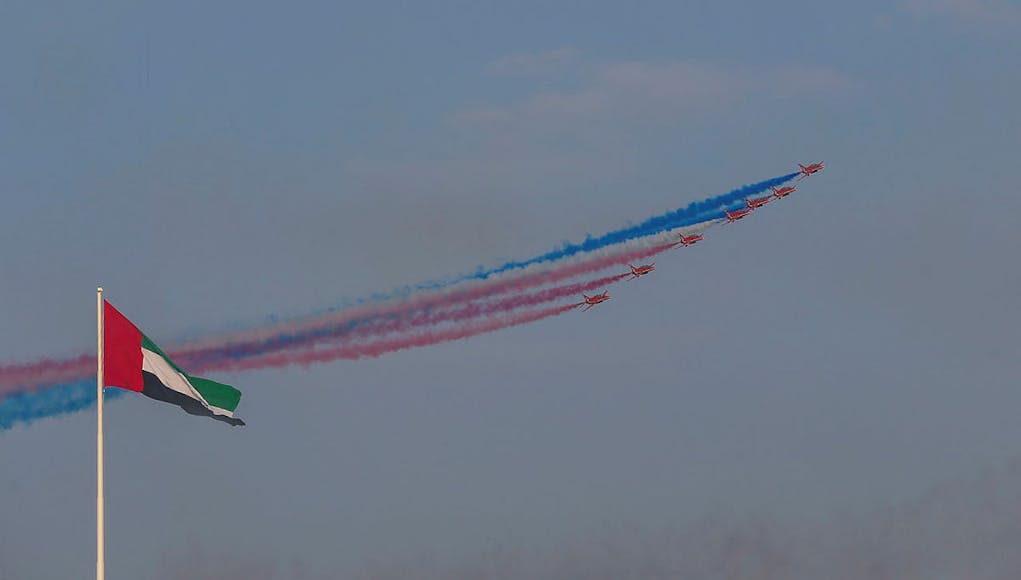

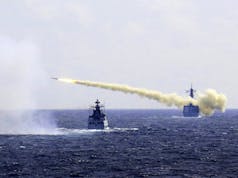

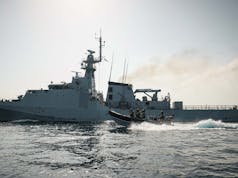
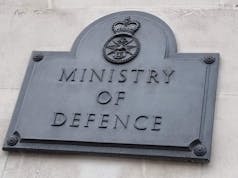


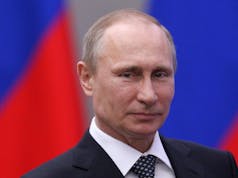
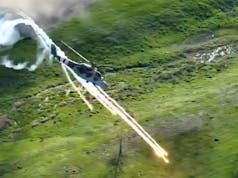


The French soon pull back with losing out on the SUB deal 🤔
Despite a bigger amount, the sub deal was less money than the UAE contract for Rafale.
(Majority of the sub deal was in AUS, not in France)
As a french when I read:
“UK should look to the French example a little more closely”
I’m like:
Shit, they are going to make another coalition.
Humor 😘
Very nearly 😜
Being ancient, I can remember the UK’s good relations with the Shah. Then the religious nutters took over & those weapons we sold Iran, were now aimed at us & our allies. Be careful who you sell to & watch how stable they are.
Or the type 42’s sold to Argentina.
There were some weapons they paid for but did not receive – £400m worth.
At one time, the Shah wanted to buy an Invincible class VSTOL Carrier. Thankfully, the Ayatollahs never got that.
The Iranians paid for a few hundred tanks just before Khomeini took over and now want their money back. That is one of the reasons why they have taken Nazanin Zaghari-Ratcliffe and others hostage.
Legally they are owed the money but its impossible to pay it back without it looking like paying a ransom.
Yeah they can take a running jump for that money
I agree that it would feel wrong to pay the cash back, especially as it would all be shared out among the corrupt leadership but the law is the law.
One crumb of comfort is that without the Iranian Tank orders the British Army would probably never had the Challenger series.
Said to be a prime reason the Iranians are holding Nazanin Zaghari-Ratcliffe.
Smacks a little of a sales pitch. Hopefully thought goes on behind the scenes.
A bit optimistic to suggest that we could sell AJAX to Middle Eastern countries such as UAE. It may look ‘Gucci’ but it doesn’t work. [Apparently David Marsh may be making an announcement on the troubled programme before Xmas]
It’s certainly a lucrative market in the Middle East, but I’d have to respectfully disagree with the author’s assertion that it was “quite right” to start shipping arms to Saudi Arabia to help them in their conflict with the Houthis. I’m OK with letting them have Meteor, AMRAAM, Patriot, whatever is helping them to shoot down the ballistic missiles and drones that the Houthis are sending their way. But the way that the Saudis have prosecuted their war in Yemen, targetting civilians at a strategic level, is utterly unacceptable and I don’t think the UK should be enabling their offensive… Read more »
Well Royal airforce staff stationed with Saudi seem to think alot of these claims are propaganda. That the Houthi station troops and weapons in hospitals and schools to cause this.
Well, that’s certainly possible. But when the UN is stating that 60% of civilian casualties in Yemen in 2016 were due to airstrikes, when the country has been experiencing famine and disease epidemics starting that year, I would have to question the assertion that the Saudis are being at all careful in their prosecuting of targets. Maybe they’ve got better in the last 5 years? Ultimately though, we had similar issues with targets deliberately placing themselves near civilians in Iraq, Israel has similar problems, neither place experiences anywhere near the proportion of civilian casualties that Yemen does. Then you’ve got… Read more »
I could live with it so long as the weapons we sell are too expensive to be wasted on civilians.
That said we’d still be providing the umbrella to enable potential atrocities to happen by other means.
We haven’t really been than good at armoured vehicle sales overseas since the days of Chieftain and CVRT, Granted Jordan purchased approx 45% of CR built, Kuwait 25% of the Warriors and Oman 10% of CR2, but apart from that we haven’t sold a lot. Is this down to poor product, poor sales-staff or a lack of Government support. I don’t know the answer, but given the current state of play, I think that if we want to expand our own indigenous capability, industry needs Government backing, and some very good salesmen. We should perhaps also learn lessons from those… Read more »
I thought Jordan had taken all but the most knackered CR1s when they went out of service with Brit Army – but they didn’t pay too much for them.
Has anyone assessed how good a deal this was for UAE? It’s come to a sudden head after nearly 15 years.
There are quite some politics around the UAE standoff with the USA on F-35.
When I had a look at the Greece frigate deal, it looked to suddenly be far better value for Greece than was offered to them before the submarine spatette.
Mons. Macaron wants good news before his election, I expect. And gets to tweak the US’s nose as well.
Just no. We should not be selling arms to countries with serious questions around human rights etc, and esepcially not ones that use the military to keep control of the country, which applies to most of the middle East. Sooner or later we will see those weapons used against their own people.
There are better ways to build economic ties than selling weapons.
Weapons have been the life blood of this country since the The turn of the age of steel and the beginnings of British Engineering ‘sector’, there may be more moral ways to build economic ties but they are well accounted for by other nations able to easily out-compete, and seldom as lucrative to boot.
Either we play nice with them or China does, thereby getting a foothold in a vital part of the world in terms of energy supply and shipping. We can’t afford to not be friends with them
global britain useless yuppie tosh. i’m sick of the phrase
Silly thing is that we have always been Global Britain.
Only since the Bronze Age. Cornwall Tin was traded in the Med.
Thanks John. Some people think that Global Britain is merely a Boris soundbite/initiative – and also that it is unachievable for some reason.
If the UK can’t deploy a significant and self-sustainable warfighting formation to defend our closest allies in Europe, how the hell are we going to have a significant impact in the Middle East? ‘Global Britain’ sounds dangerously close to ego based sloganeering, preventing us actually fulfilling our defence priorities.
Of course we had a significant land/air impact in the Middle East (and environs) in Gulf War 1 and 2, admittedly some years ago – and the RAF is still bombing Da’esh targets in Syria. Whether it be in Europe or the Middle East, we would not be able to deploy a 3-brigade digitised warfighting division with modern/upgraded AFVs now, that’s for sure – but could probably field a 2-brigade non-digitised division if pressed by the PM. Defence priorities – that is a good point. I would have to refresh my memory as to what the Integrated Review and the… Read more »